Nursing Leadership: Skills Evaluation and Improvement Strategies
VerifiedAdded on 2022/11/10
|5
|715
|129
Homework Assignment
AI Summary
This assignment is a self-assessment of a nursing professional's leadership skills, specifically identifying the servant leadership style as the primary approach. The author evaluates their strengths, such as communication and empathy, while pinpointing time management as an area needing improvement. The assignment highlights the importance of effective leadership in providing safe patient care, particularly in the context of chronic diseases. The author proposes training, workshops, and clinical supervision as crucial support mechanisms for enhancing leadership skills and improving clinical practice. Furthermore, the author discusses the role of a change agent, the benefits of self-evaluation, and the importance of collaborative practice in improving patient care and satisfaction. A relevant research article is also included as a helpful resource for leadership development.
1 out of 5
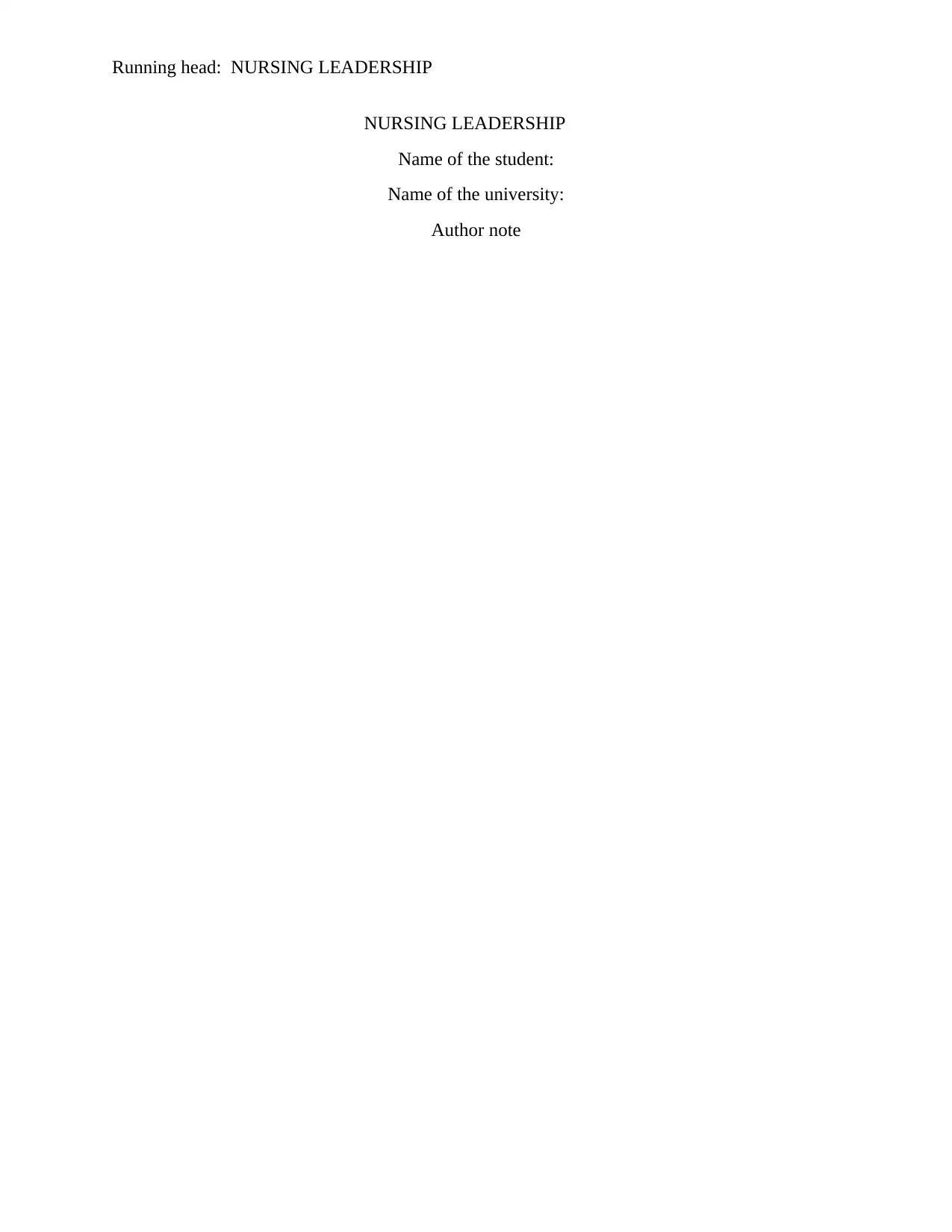
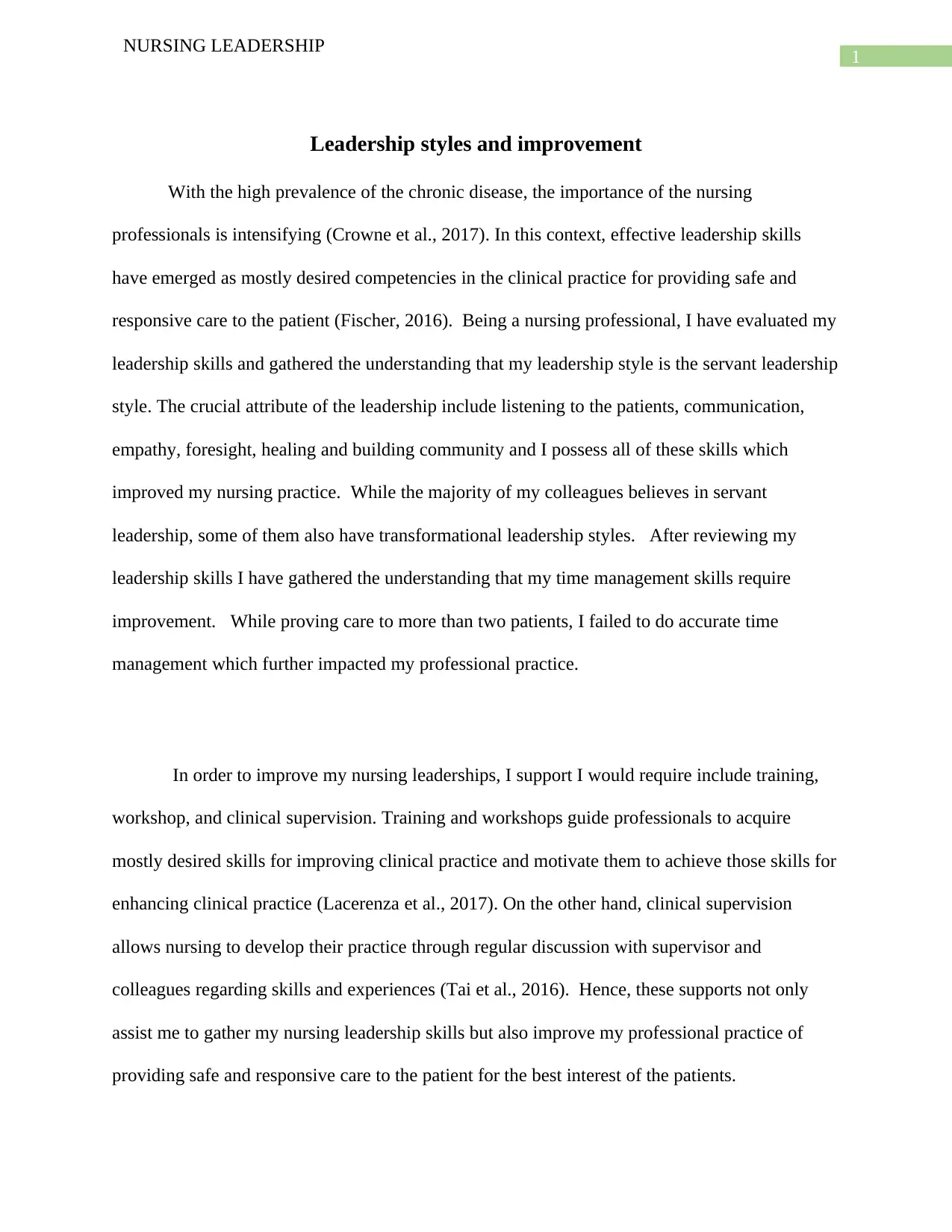
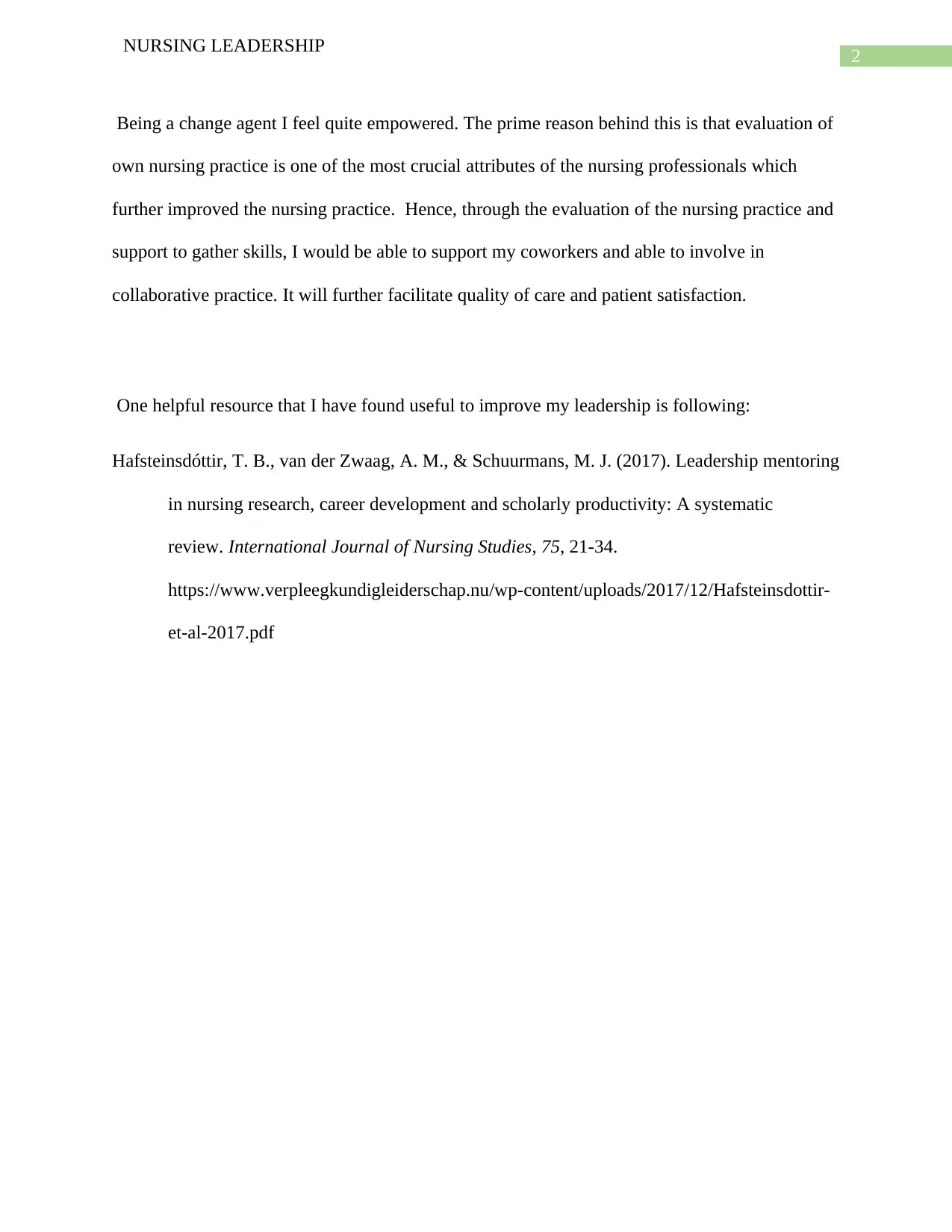

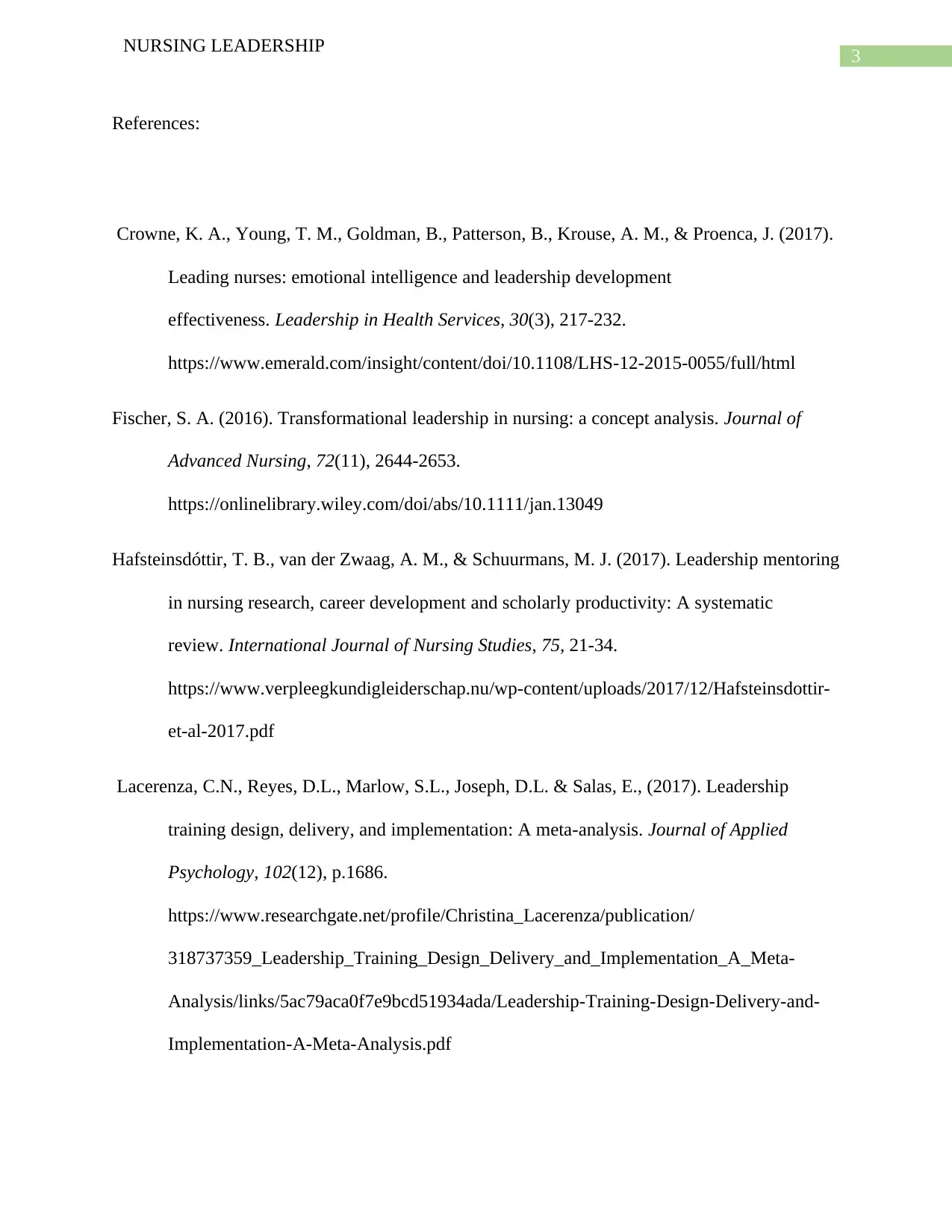
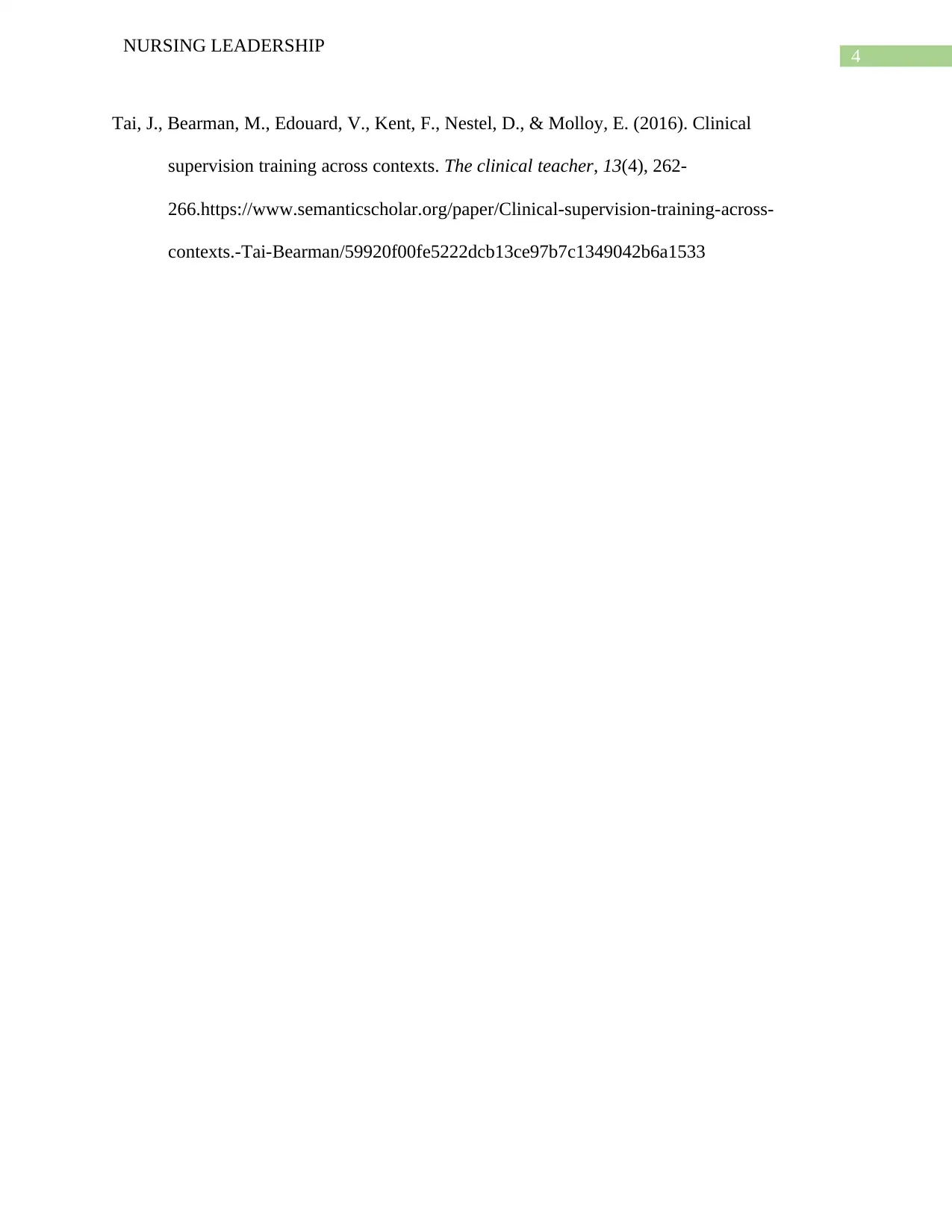






![[object Object]](/_next/static/media/star-bottom.7253800d.svg)